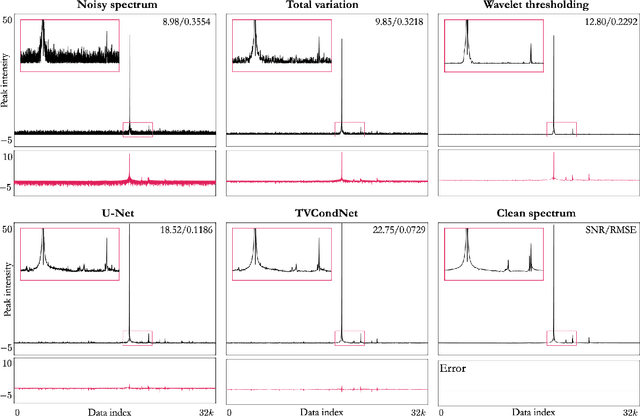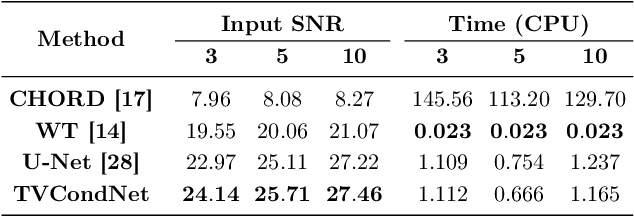TVCondNet: A Conditional Denoising Neural Network for NMR Spectroscopy
Paper and Code
May 17, 2024



Nuclear Magnetic Resonance (NMR) spectroscopy is a widely-used technique in the fields of bio-medicine, chemistry, and biology for the analysis of chemicals and proteins. The signals from NMR spectroscopy often have low signal-to-noise ratio (SNR) due to acquisition noise, which poses significant challenges for subsequent analysis. Recent work has explored the potential of deep learning (DL) for NMR denoising, showing significant performance gains over traditional methods such as total variation (TV) denoising. This paper shows that the performance of DL denoising for NMR can be further improved by combining data-driven training with traditional TV denoising. The proposed TVCondNet method outperforms both traditional TV and DL methods by including the TV solution as a condition during DL training. Our validation on experimentally collected NMR data shows the superior denoising performance and faster inference speed of TVCondNet compared to existing methods.
 Add to Chrome
Add to Chrome Add to Firefox
Add to Firefox Add to Edge
Add to Edge